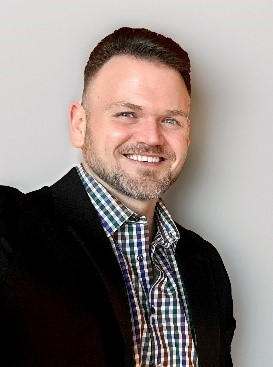- A synthetic dataset of Gen-Z customer financial data, and a simulation tool to result in cashflow scenarios that closely mirror real-world behaviors of specific demographic groups. We expect that the team will work with probability distributions of different kinds, sampling from them, and fitting distributions’ parameters to known data, Bayesian data analysis, and Monte Carlo simulation. The cashflow data will reflect that of real-world data the team will collect (ex. peer or personal spending information) as the control. The data generation tool can modify the dataset output based on demographic factors.
- A Prototype of a personal finance management application. This application will help users in following ways:
- Track their cashflows (synthetic and real) that realistically reflect financial lives. (Ex. the team can use synthetic data to model future state while tracking and monitoring real-world activity against those projection)
- Offer an “at-a-glance” view of users’ personal finances – income, expenses, savings, trends, etc.
- Recommend ways to optimize cash flows and maximize savings for specific user groups.
- Offer integrated view of savings, investments, and personal financial goals.
- Complete comprehensive background literature review, including identification of relevant public and collected data sources. Identify any skill gaps/training needed in first weeks of project.
- Generate a validated synthetic dataset of targeted demographic high-priority financial variables factors such as age, location, profession, lifestyle, and financial situation, including:
- Breakdown of spending categories: discretionary, non-discretionary, etc.
- Identification of relevant variables.
- Estimating distributions and covariances.
- Sponsor will evaluate/review the synthetic data set for internal consistency, and make sure it meets reasonable expectations.
- Build a tool/UI to simulate future cashflows for a single person, drawn from the most likely probability distributions of each of the individual parameters, fixed time frames, and assumptions about future economic conditions.
- Refine the cashflow simulation tool, incorporating more sophisticated techniques in the creation of a simulated population of individuals (e.g., adding parameter covariances, periodic changes in future economic conditions, periodic changes in future financial situation (e.g., job promotion, end of student loan), living region/state, etc.)
- Refine the entire tool package (Database, calculation, presentation).
- Develop a higher fidelity prototype product with a UI/UX optimized for new Gen Z investors that models future stated goals against current spending habits.
Data Science/Statistics (3-4 Students)
Specific Skills: Creating synthetic data, identify and analysis of trends, Basic programming to support DS evaluation EECS 281(or equivalent) is required Participation in the Program in Mathematics of Finance and Risk Management is a plus Likely Majors: BBA, CS, DATA, STATS, MATHMachine Learning (2-3 Students)
Specific Skills: Modeling and prediction EECS 281(or equivalent) is required. Completion of Machine Learning project work/academic courses expected Likely Majors: CSTool Development (including UX) (1-2 Students)
Specific Skills: General programming skills, database design, tool development, front end design, development of personas EECS 281(or equivalent) is required EECS 493 would be a benefit SI students also have must have strong quantitative skills in statistics/computer science Likely Majors: CS, SIAdditional Desired Skills/Knowledge/Experience
If you have any of these characteristics, highlight them on your Experience and Interest Form and talk about them in your (optional) one way video interview.
- Practical experience developing and validating synthetic datasets.
- Knowledge and interest in basic consumer finance, personal finance and investing.
- Project / Internship experience in database + front end design.
- If you have experience with any of the following technologies, please note it in your personal statement:
- Python-based stack for Data Science (pandas, NumPy, scikit-learn, Jupyter Notebook).
- UI/Front-end, anything based on React/TypeScript (e.g., Next.js) will be a plus.
- Postgres DB for persistence.
- Creative, collaborative, entrepreneurial, and self-motivated.
Sponsor Mentors

Dmitry Bislkalo
Dmitry is a member of FCAT’s Data Science team. He and his colleagues are tasked with solving difficult problems for Fidelity, and creating innovative AI driven products. He has a passion for matching business challenges to the art of the possible.
Chuck Collins
Chuck Collins, at the Fidelity Center for Applied Technology (FCAT), serves as the Director of University Research & Engagement. In this role, Collins focuses on fostering collaborations with universities and engaging in research initiatives that drive innovation within FCAT and Fidelity. Before joining Fidelity in 2021, Collins’ career has been in entrepreneurship education. While at previous institutions, Harvard Business School and Babson College, he developed programs such as the HBS Rock Accelerator, among many others, to support entrepreneurship exploration and founders. As a habitual intrapreneur, he has launched multiple new products and program offerings with his experience in various roles as an educator, coach, and investor, emphasizing his commitment to nurturing innovative technologies and business ventures.Faculty Mentors

Kerby Shedden
Kerby Shedden received his PhD in Statistics from UCLA in 1999 and joined the University of Michigan the same year. His research interests include genomics, genetics, and other areas of life science where large and complex data arise. He also is interested in computational statistics and statistical software development. He participates in many collaborative research efforts including biomarker screening for cancer and kidney disease outcomes, cell-based screening for understanding the behavior of chemical probes in cells, and genetic association analysis for longitudinal traits.Weekly Meetings: During the winter 2025 semester, the Fidelity team will meet on Wednesdays from 2:30-3:30pm in 277 West Hall.
Work Location: Most of the work will take place on campus in Ann Arbor.
Course Substitutions: CE MDE, ChE Elective, CS Capstone/MDE, Data Science MDE/Capstone, DS Graduate Practicum, EE MDE, CoE Honors, SI Elective/Cognate
Citizenship Requirements: This project is open to all students. Note: International students on an F-1 visa will be required to declare part time CPT during Winter 2025 and Fall 2025 terms.
IP/NDA: Students will sign IP/NDA documents that are unique to Fidelity.
Summer Project Activities: No summer activity will take place on the project.
Learn more about the expectations for this type of MDP project
